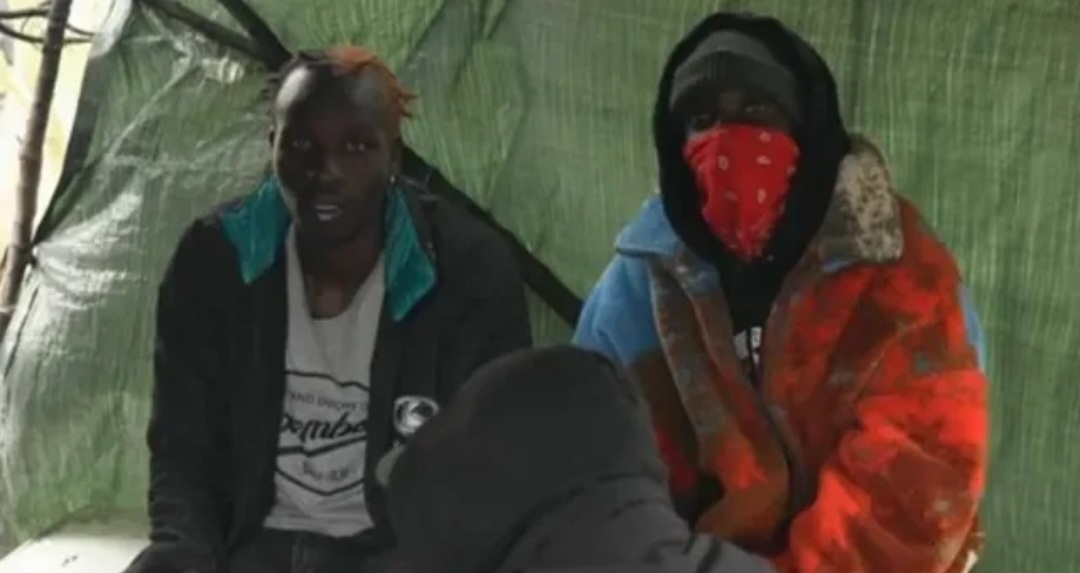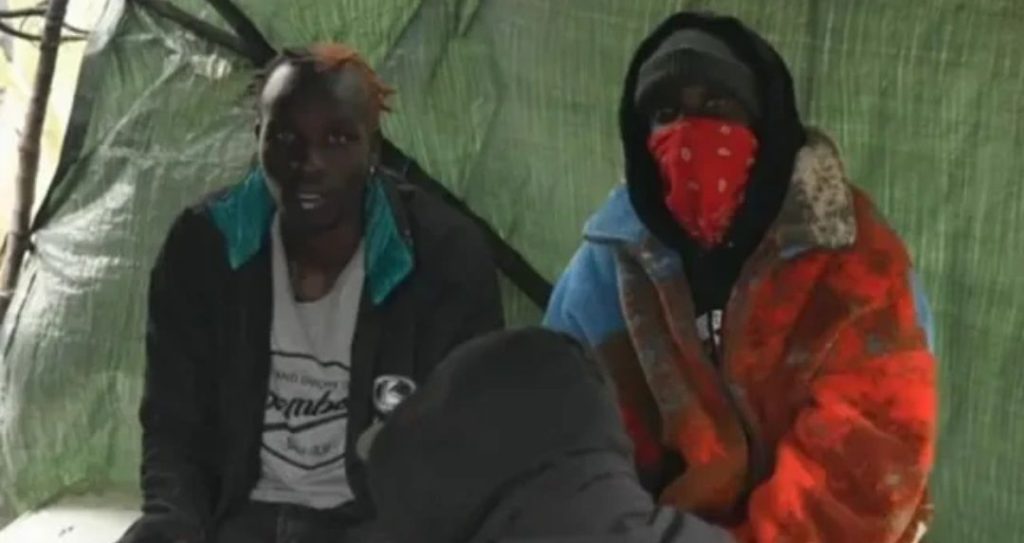
In the shadow of the bustling highways of northern France, a makeshift settlement in Dunkirk stands as a stark reminder of Europe’s ongoing migrant crisis
Here, amidst the squalor of weather-beaten tents, a community of displaced individuals grapples with the daunting reality of the UK’s proposed legislation—a bill that could see them transported thousands of miles away to Rwanda for asylum processing.
According to a report by BBC, the UK government’s initiative, aimed at curbing the influx of undocumented migrants, has sparked a maelstrom of controversy and fear among those it targets.

At the heart of the debate is a five-year pilot agreement with Rwanda, which stipulates that certain asylum seekers arriving in the UK could be relocated to the East African nation while their applications are reviewed.
For one man, whose harrowing three-year journey culminated in the cold uncertainty of the Dunkirk camp, the prospect of being sent to Rwanda is tantamount to a death sentence.
Speaking to the BBC, he expressed a sentiment of despair, labeling the UK’s approach as “inhumane” and a gross underestimation of the lengths to which migrants go to reach British shores.
The policy’s efficacy and morality are under intense scrutiny.
Should the agreement prove successful, those relocated could eventually gain refugee status in Rwanda.
However, failure to meet the criteria would leave them with limited options: seeking residency in Rwanda through alternative means, petitioning for asylum in another designated “safe third country,” or facing the grim reality that a return to the UK is off the table.
James, another inhabitant of the Dunkirk camp, voiced his distrust in the safety of Rwanda, a sentiment echoed by many who have fled persecution and conflict in their homelands.
The UK Supreme Court’s November 2023 ruling, which deemed the Rwanda scheme unlawful due to concerns over Rwanda’s human rights record, has done little to allay these fears.
In response, the UK government has doubled down, introducing a bill to legally affirm Rwanda’s status as a safe haven for refugees.
The stories of Daniel and Richard, two more voices among the camp’s transient population, further illustrate the complex tapestry of emotions and decisions faced by migrants.
While Daniel vows to return to Europe if deported to Rwanda, Richard remains undeterred, resolute in his pursuit of a life in the UK, regardless of the potential detours his journey may entail.
The human cost of the channel crossings, underscored by the tragic loss of nine lives this year alone, has not dampened the resolve of those seeking asylum.
The record-breaking arrival of over 4,500 migrants in the UK in the first quarter of the year stands as a testament to the enduring hope and desperation that fuels their perilous voyages.
Chris McSherry, the operation coordinator at Care 4 Calais, challenges the notion that the Rwanda policy serves as a deterrent.
The persistent presence of migrants in Calais, he argues, is evidence of their unwavering determination to reach British soil.
Prime Minister Rishi Sunak’s declaration in December underscores the government’s stance on illegal immigration, emphasizing removal over residency for those who bypass official channels.
Yet, as the Rwanda deportation bill faces further deliberation in Parliament, its ultimate fate—and the futures of countless individuals—hangs in the balance.
A government spokesperson has reiterated the administration’s commitment to the policy, asserting that once the necessary legal frameworks are established, the implementation of deportations to Rwanda will commence swiftly.




